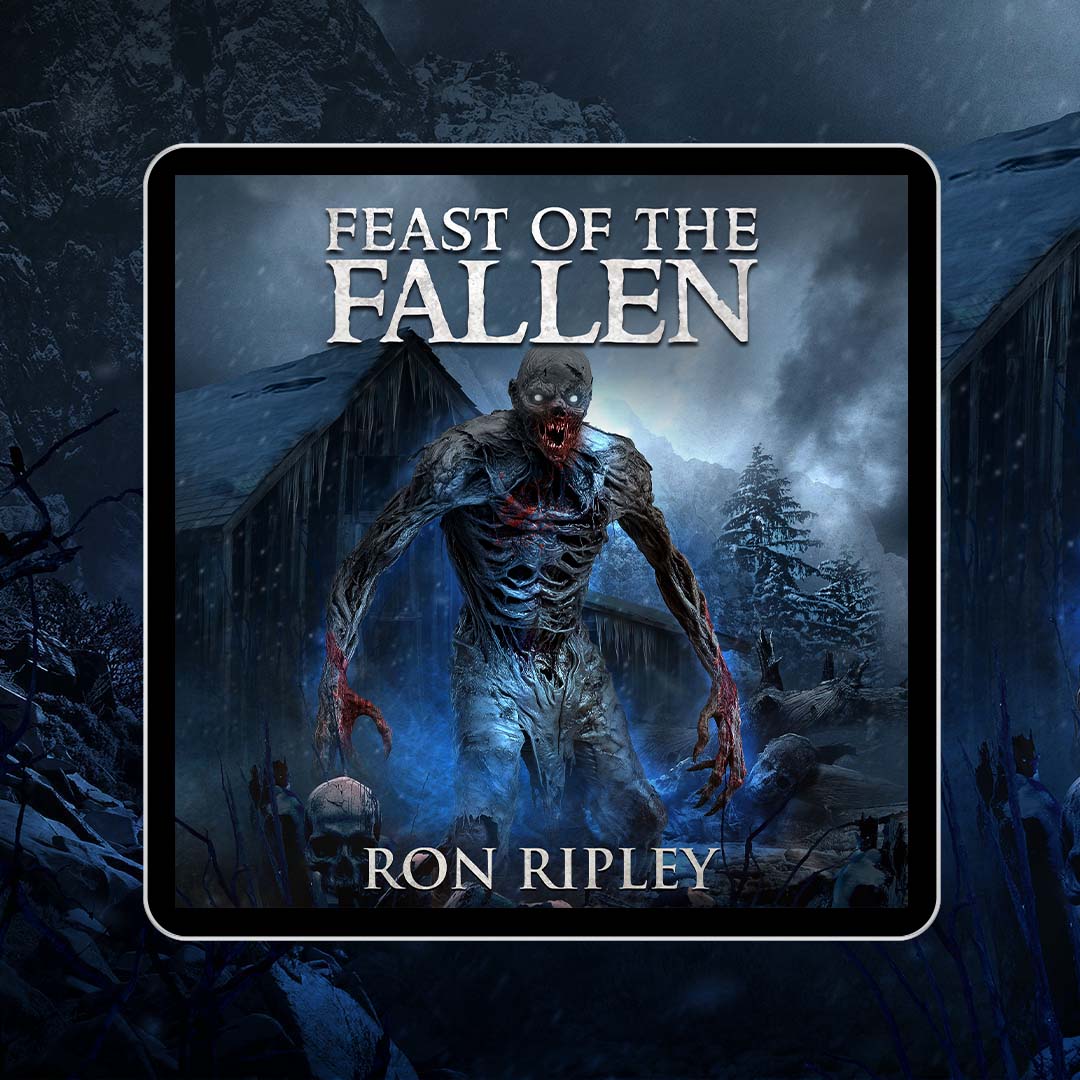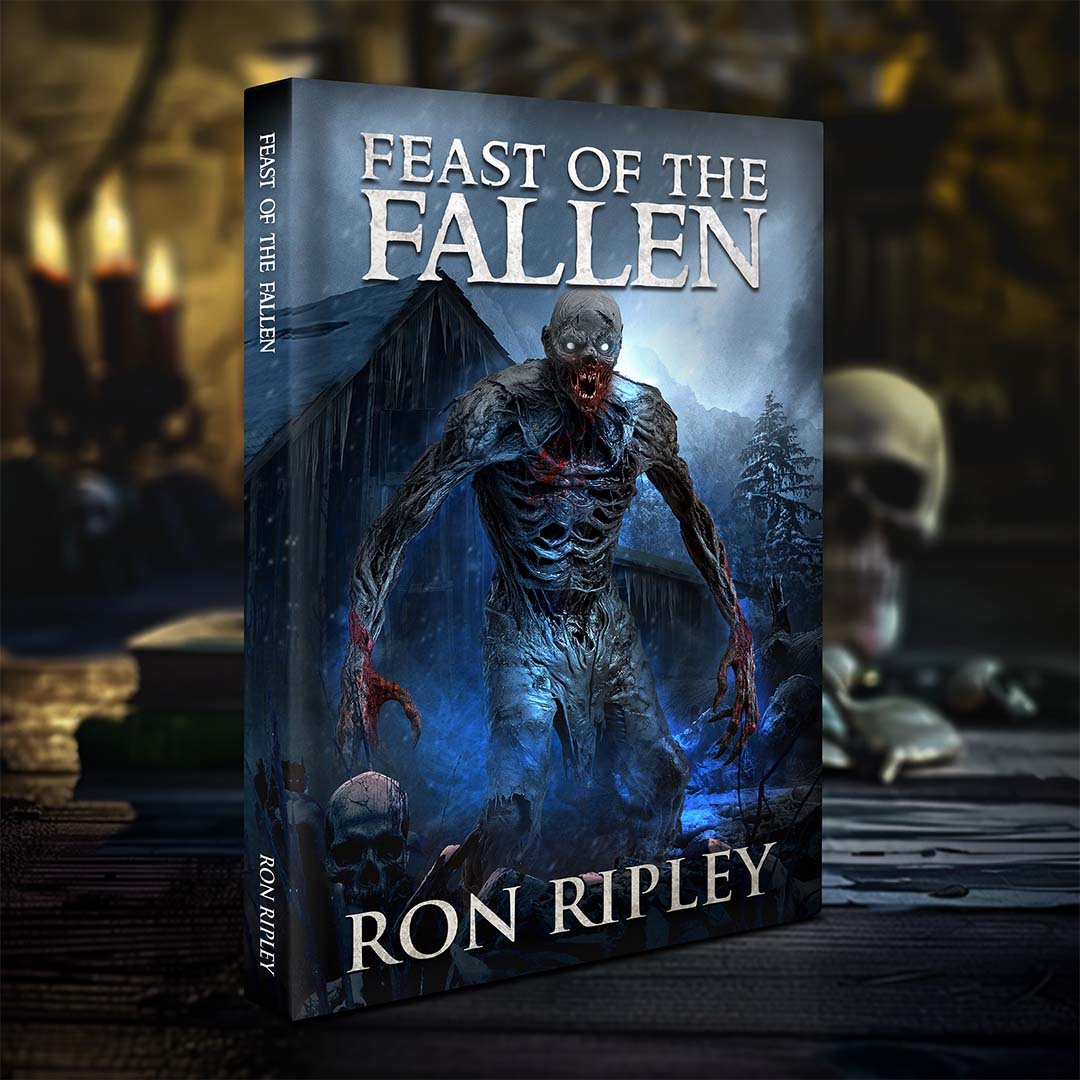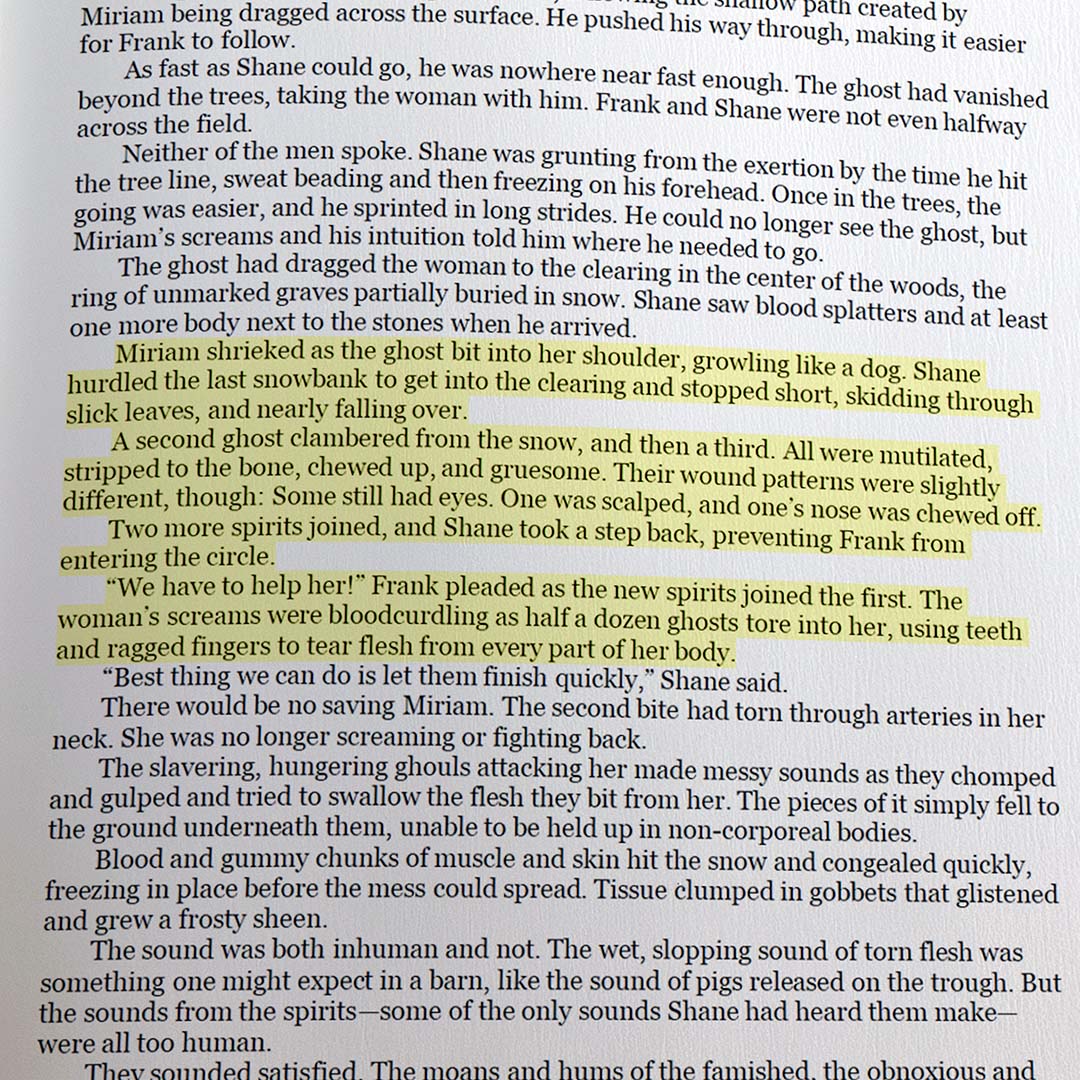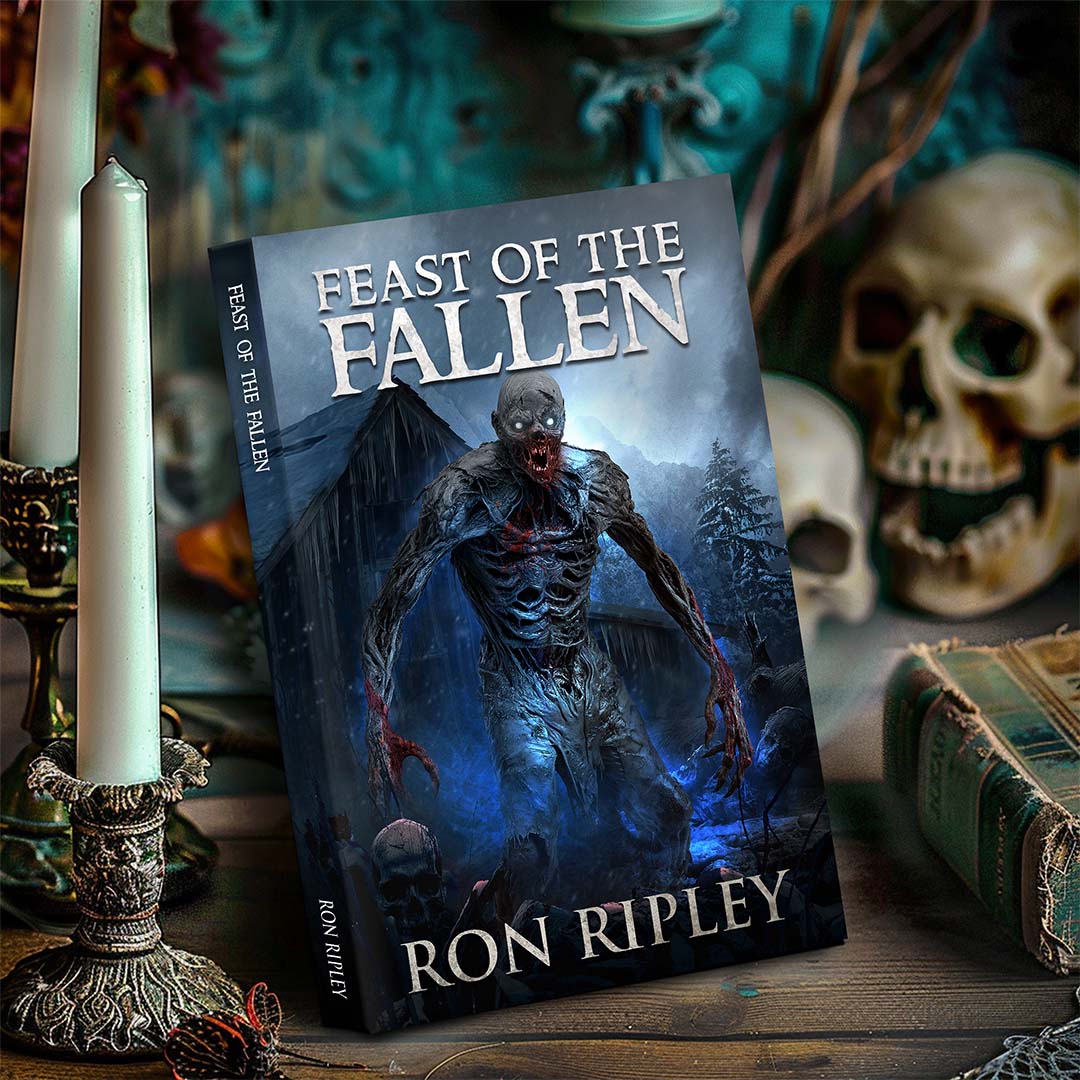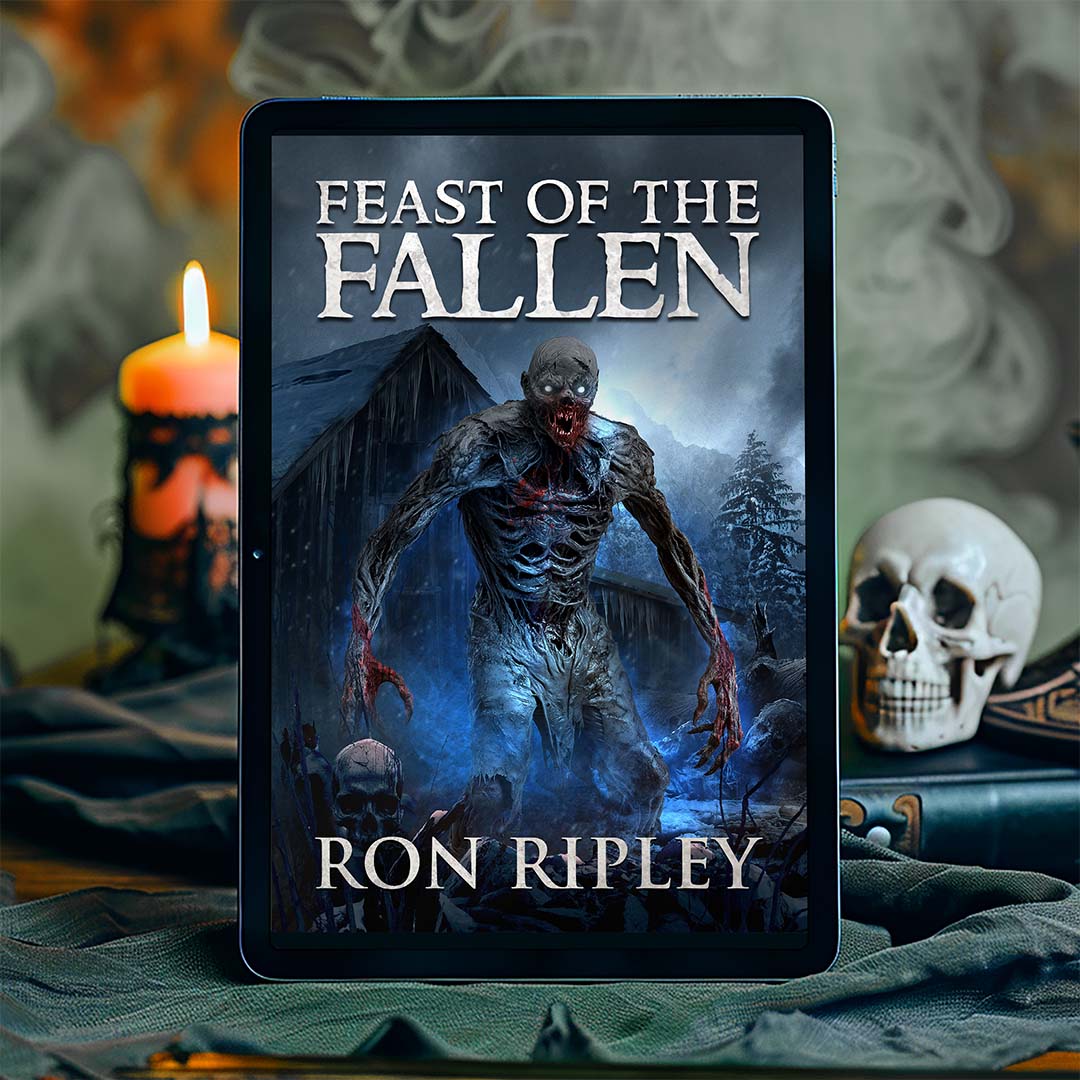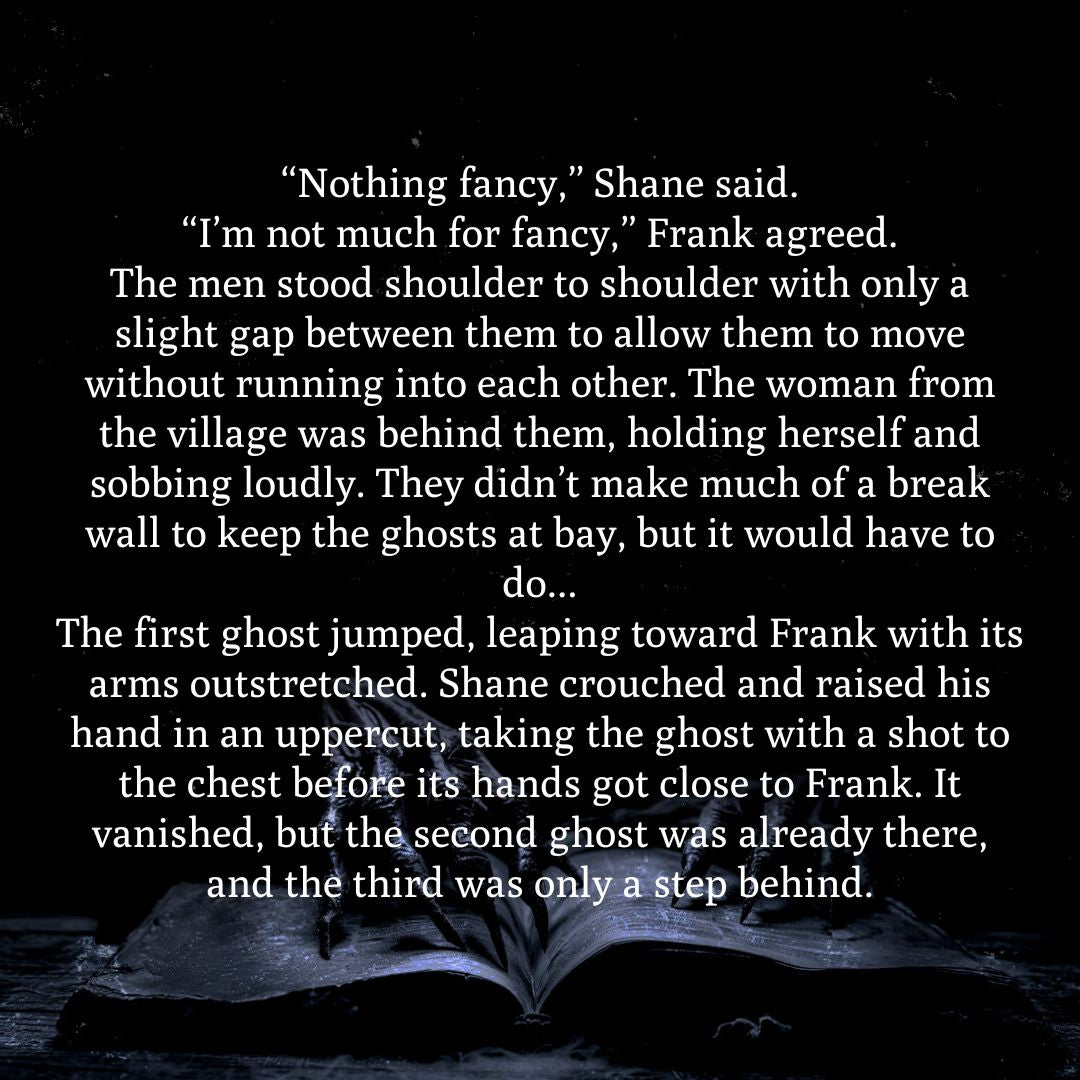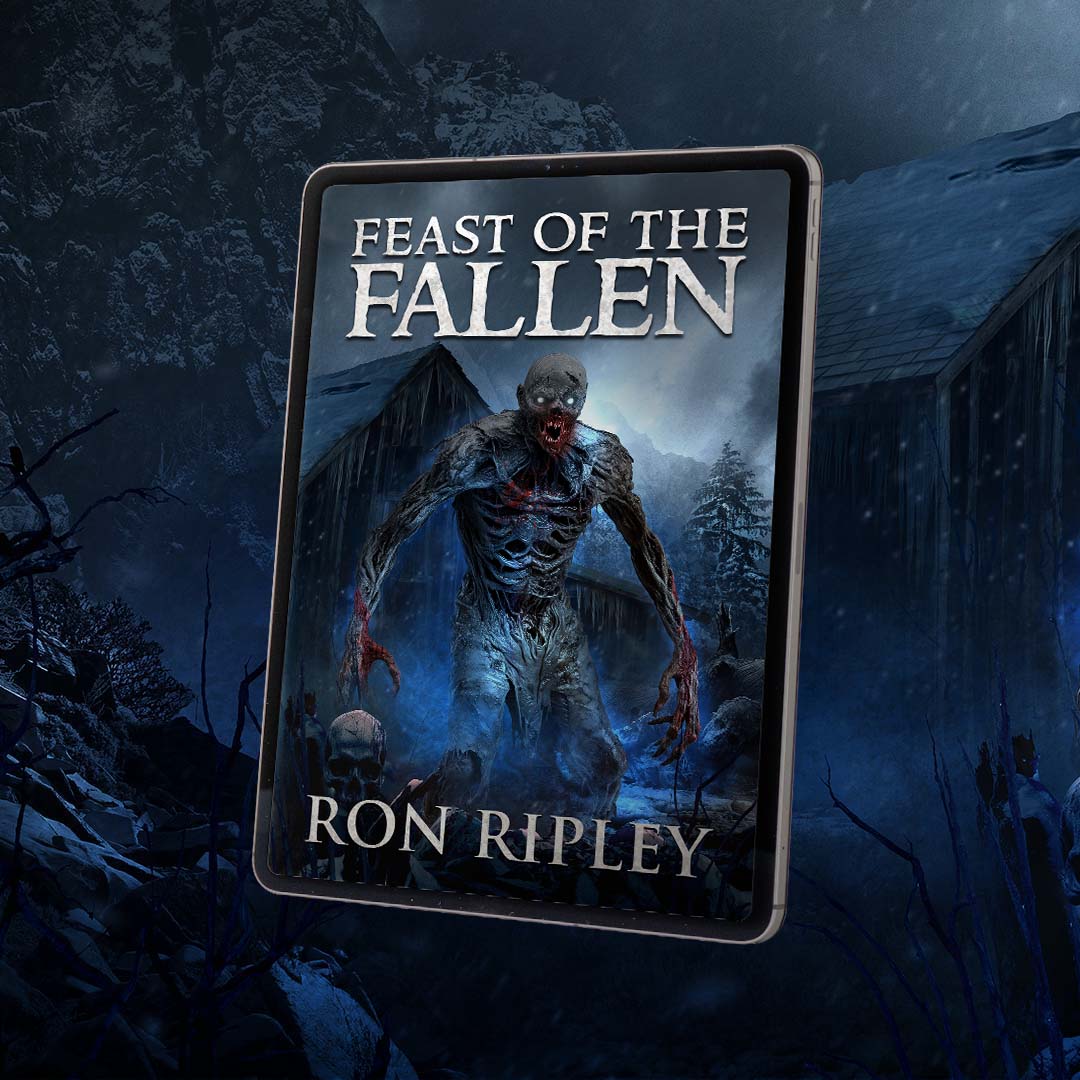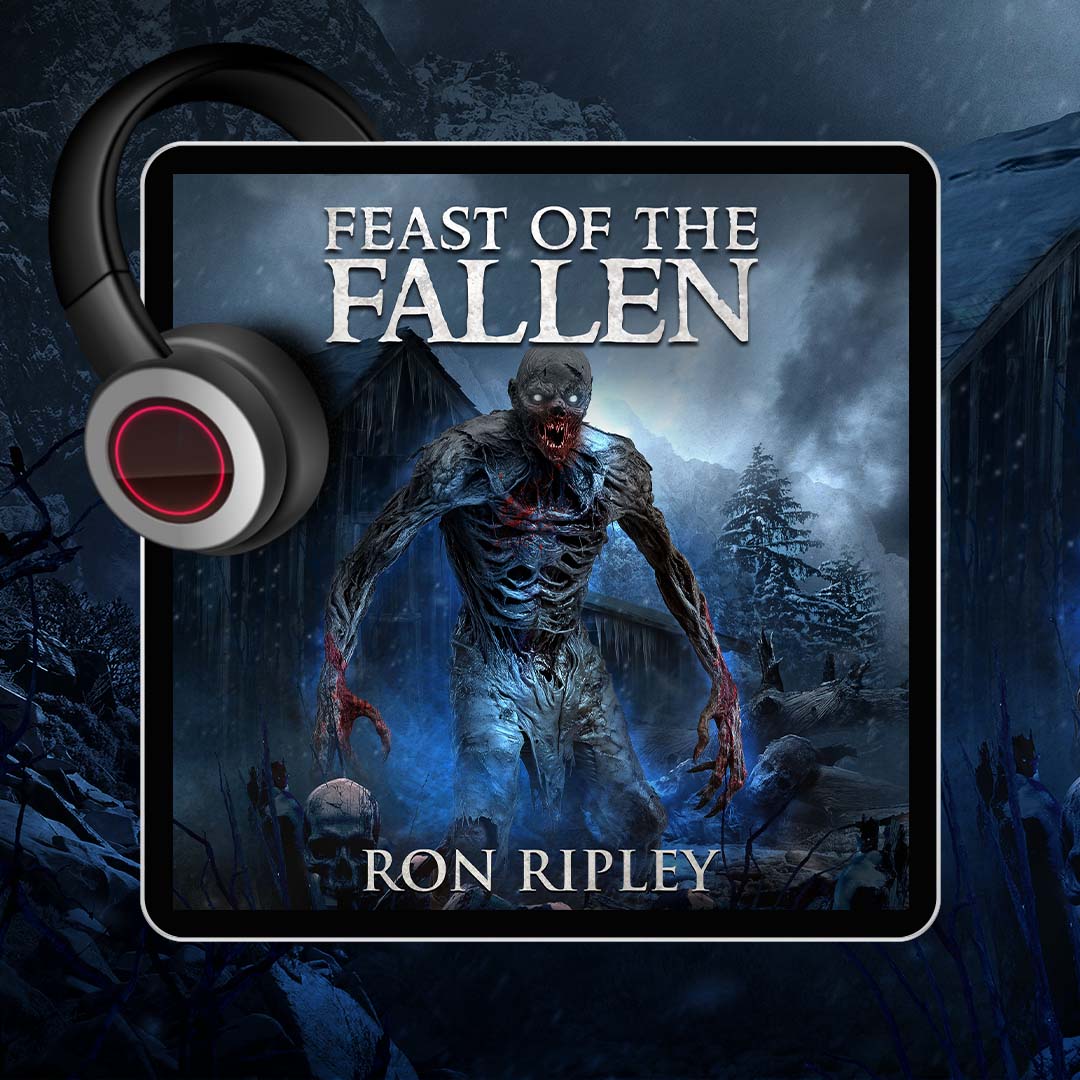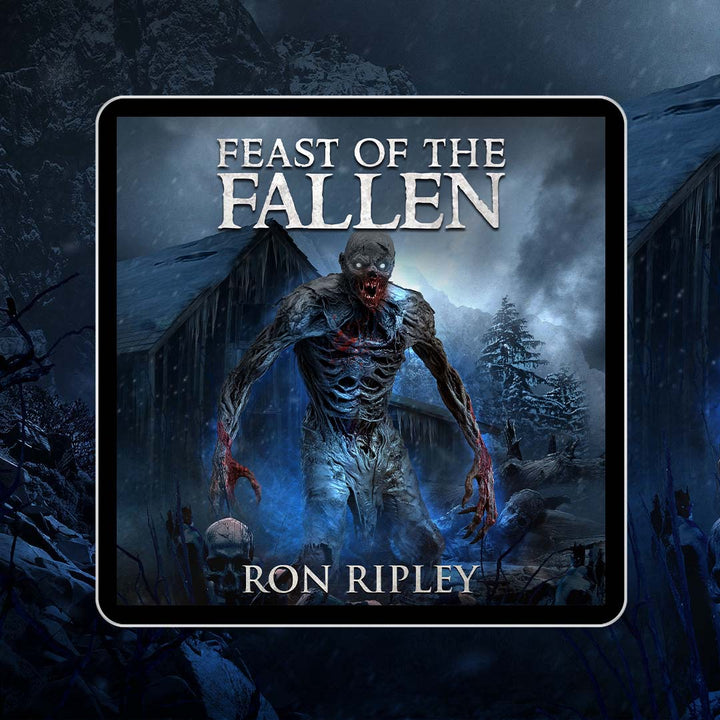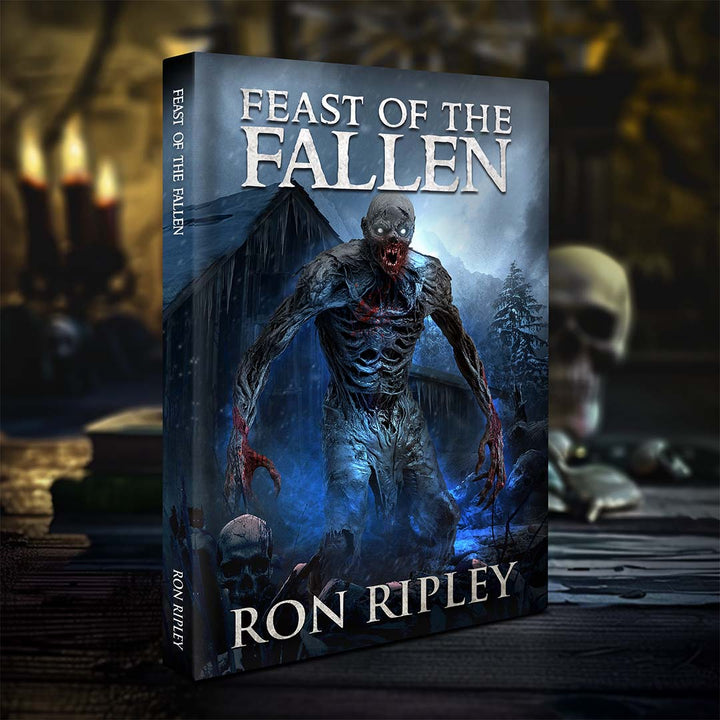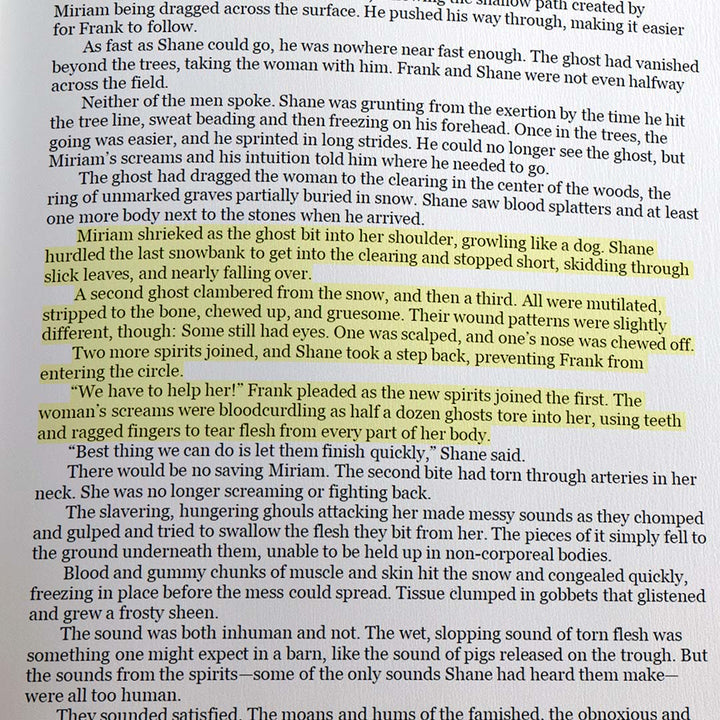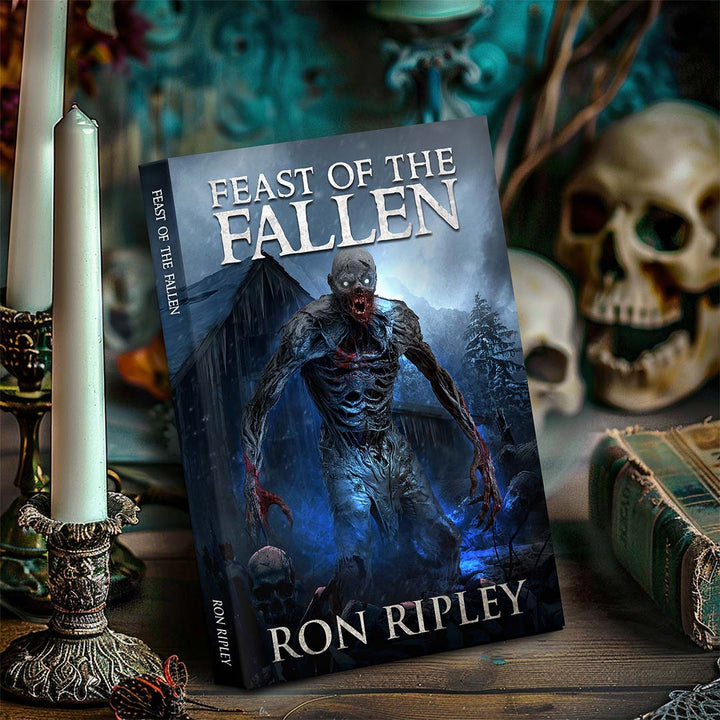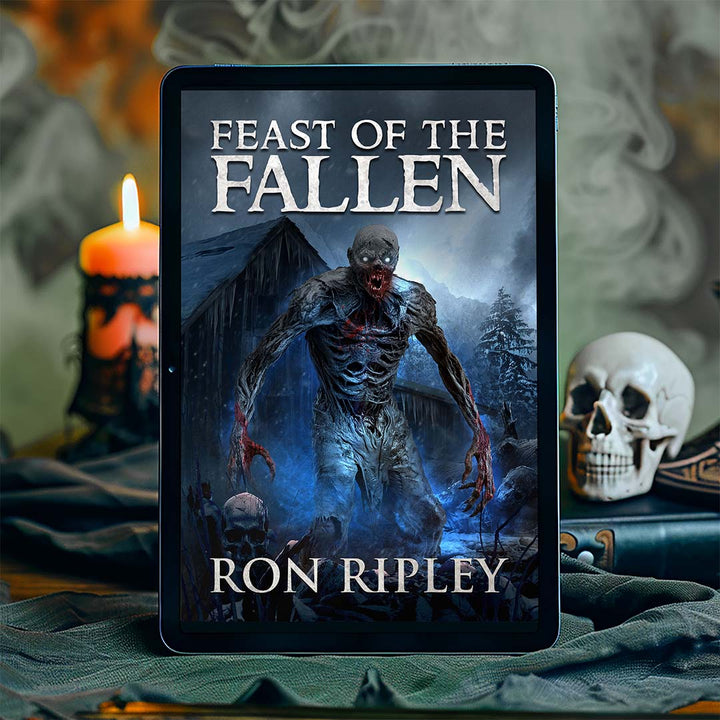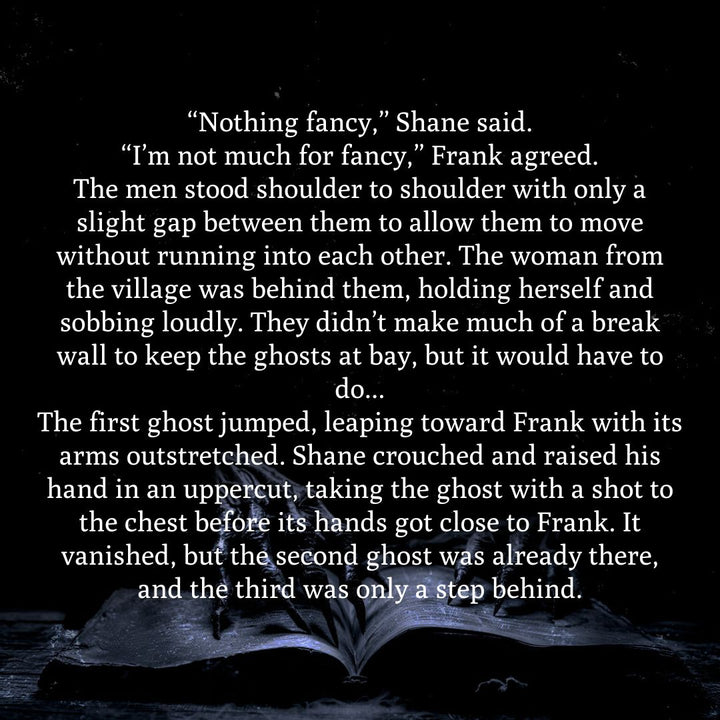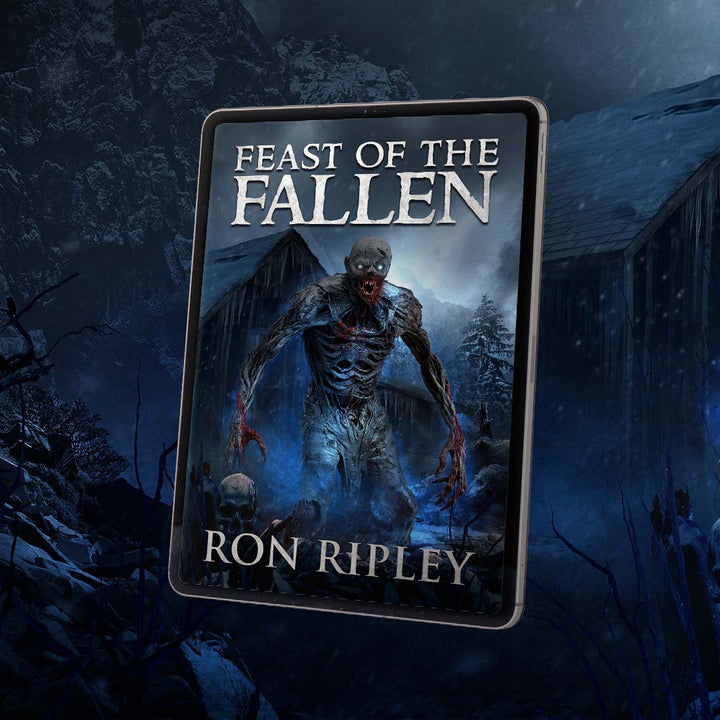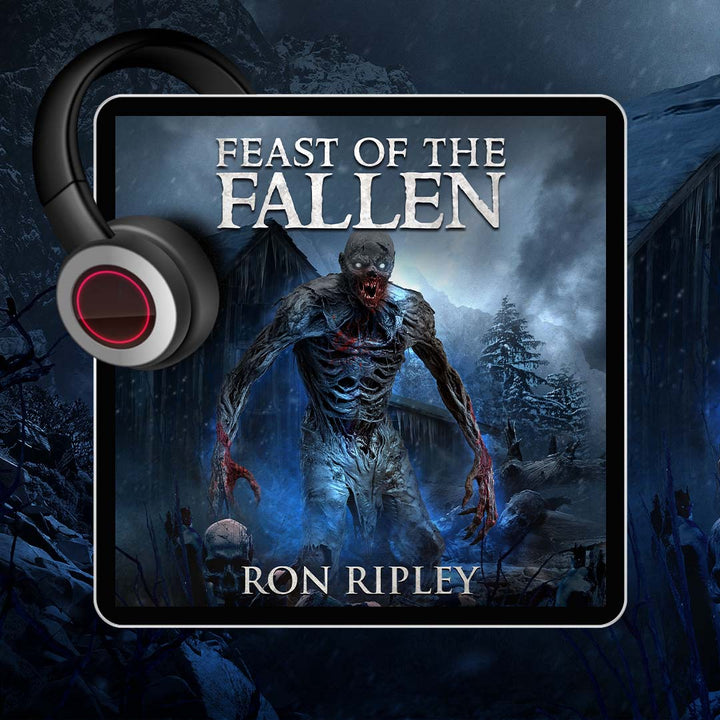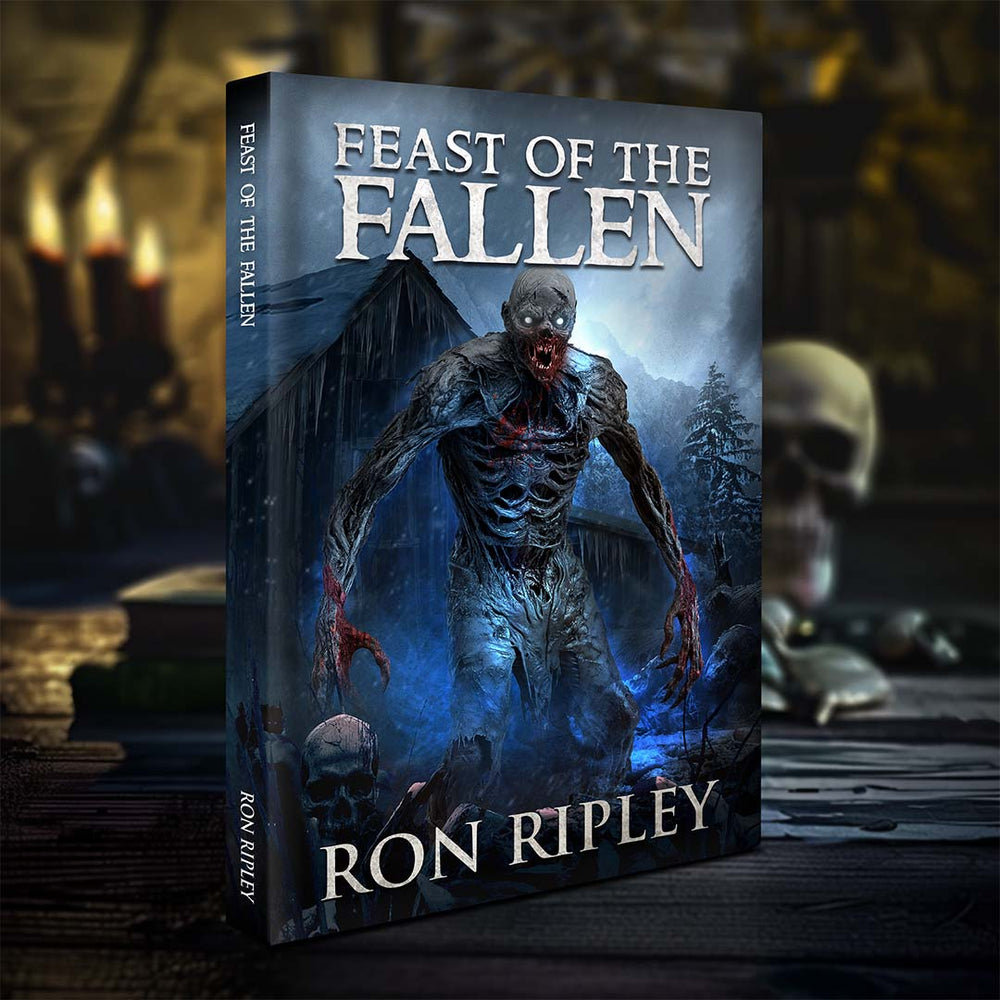Feast of the Fallen: Ravenous Spirits Series Book 2
- In stock, ready to ship
- Backordered, shipping soon
- Fast Shipping & Easy Delivery
- Safe Transactions
- 30-Day Money Back Guarantee
Listen to a sample here:
🗣 Narrated by Thom Bowers
Blood has spilled, but the hunger remains…
Stranded on a remote island with no escape, ghost hunters Shane Ryan and Frank Benedict uncover the horrifying truth behind Maple Grove's isolated community. For generations, villagers have offered human sacrifices to appease ancient, cannibalistic spirits that haunt the woods…
Now the fragile balance is broken.
These insatiable ghosts—mutilated specters that devour human flesh—stalk the shadowy forest, hunting for fresh prey. But an even deadlier entity lurks beneath the island’s bloodstained soil. And its eons-long slumber is coming to an end…
Shane and Frank must use every ounce of their courage and experience to battle both fanatical villagers and supernatural horrors. With their ally, the ghost of a victim from centuries past, they must race to destroy the cannibals before their king awakens.
Because once its ancient hunger is unleashed, no one will leave the island alive…
| PRINT LENGTH | 189 pages |
| AUDIO LENGTH | 7 hours and 29 minutes |
| NARRATED BY | Thom Bowers |
| PRODUCT DIMENSION | 6 x 0.5 x 9 inches |
| PRINT ISBN | 979-8-89476-316-3 |
| LANGUAGE | English |
| PUBLICATION DATE | August 4, 2025 |
Prologue
Simon Mackenzie stared at the small pile of bones. Ribs, he thought. A bit of spine. Probably some unfortunate soul who crashed upon the rocks and never made it off the island again.
Mackenzie had not seen the island on any of the charts he had consulted. The North West Company offered some limited help in establishing an outpost in the area, but he wanted to make more of a name for himself. He was already a shareholder; now, he was hoping to make inroads in the trade between the Commonwealth of Massachusetts and Acadia.
He and his men had done a brisk trade in New Scotland, but the territories farther south were ripe with opportunity. The fur trade was at its zenith, and more men were coming from France and England. Even the Portuguese and the Spanish were coming more frequently, and that made what had once been a much easier job more difficult.
The company was new, but it was formidable. Their goal, maybe not publicly stated, was to take on the Hudson’s Bay Company. For most traders, that meant cutting right into HBC territory. They forged west, all the way to the Pacific Northwest in some cases. But Mackenzie had other ideas. He had found the island, some twenty-five miles off the coast in inhospitable and frigid waters, and it would serve as an outpost, an advantage no one else had. The East Coast was still a land of prosperity and abundance. And he would make his mark.
Most others thought he was foolish for not venturing into the unknown territories of the West. He had thought it a good idea once, but there was more to Mackenzie’s goals than discovering wealth. He wanted power. He wanted to exercise that power and show that he could be a dominant force in a land that was becoming saturated with big names, big ideas, and too much competition.
To Mackenzie, that was the mark of success. Any man could head west, discover lands untouched by civilization, and claim success. Where was the challenge? Overcoming nature was an admirable goal, but the true challenge, Mackenzie thought, was being the best among others. Overcoming the competition and coming out on top. Not just being the best alone.
Uncharted though the island might have been, it was obvious someone had been there. He thought the bones looked old. Carruthers confirmed as much, inspecting the spinal section and declaring that the body had been there for at least a decade, maybe longer.
They had landed on the western shore of the island. To the north and around the east, the rocks rose into large, impossible cliffs. But the west offered a small beach, and a small inlet into which they could bring in the boat and venture forth to see what the land offered. Unfortunately, the rocks played havoc with their hull and tore it asunder before they realized they had ventured too close. What had been planned as a simple landing had become a wreck. They fled to the shore out of necessity and would need to harvest wood and supplies to repair the hull before they could leave.
From the sea, Mackenzie saw vast swaths of forest. That meant, if nothing else, timber for building. There would likely be animals for hunting, as well. And certainly good fishing, for the waters were abundant with cod and sturgeon.
He captained a crew of a dozen men. Carruthers, the ship’s medic, was the newest member and the least experienced in exploring. He had joined the expedition in the hopes of heading west, but he was amenable to Mackenzie’s plans to stay on the eastern shores of the United States. Carson, Bundy, Lowell, and Ashley were also new additions from Acadia. They were green but hungry, and they seemed like good and loyal men. Mackenzie had high hopes for success.
“Gentlemen,” Mackenzie said to his assorted crew. “Let us explore. Mr. Lucas will oversee the repair work.”
They had been on shore no more than five minutes when Carson discovered the bones. Some of the men were not convinced they were human at first, but Carruthers confirmed that they were.
“It’s an ill omen,” Lowell said, and Mackenzie waved away the idea.
“I don’t believe in omens, Mr. Lowell. A man must make his own luck. Nature, chance, random happenstance? These things do not matter.”
“As you say, Captain,” Lowell said.
There was a steep hill to scale. The path was marred by roots and shrubs, stray rocks, and slippery footing. Carson led the way, being careful to point out the most treacherous spots, and clearing what he could to allow the other men to follow.
The island unfolded before them at the top of the hill. Forest as far as the eye could see. Nearly every tree was a maple, tall and proud and densely growing together.
“There’s a path.” Carson indicated a very narrow foot trail through the trees.
“Game or men?” someone asked.
“Men,” Carson answered. “But old.”
If men were on the island, Mackenzie could not use it. They needed to make sure it was free and unclaimed. Then he could claim it as his own for the North West Company, set up an outpost, and have an advantage in trading between the Commonwealth and Acadia. It would be a place where they could rally, rest, and plan expeditions that would cut travel time significantly while opening more opportunities. They would just need to map the passage safely to avoid the rocks. It would offer strategic advantage and safety.
The group traveled inland. Carson had his rifle at the ready, and some of the other men had pistols drawn. No one was sure to whom the island belonged, so there was safety in being cautious. Violence among traders had become more common. Disagreements led to brawls, and sometimes even deaths. So far from any shore, towns, or laws, a simple trespassing claim could easily be solved with a bullet to the head. Mackenzie kept his men ready.
The path they followed was extremely narrow and vanished entirely in places that were covered over by wild grass, and once, a patch of wild blueberries. Carson always picked it up again, and soon, they were in a clearing in the forest. Stretched out before them in a natural depression that looked almost like a bowl was a tiny settlement. Just six cabins, built from stones that must have been harvested from the shore. They sat in an open field of grass and small shrubs, with a single stream that fed into a pool near the northeastern end.
From the outside edge of the bowl, everything looked overgrown. The grass was nearly up to the doors of the little stone cabins. Whoever had built them no longer seemed to be there.
The investigation of the village proved Mackenzie correct. The houses were abandoned. Some contained relics of the former owners. There were beds, knives, tables, chairs, and bowls. It looked as though whoever lived there abandoned the place in a hurry and left their possessions behind, but it also looked as if it happened years ago.
The efforts to gather supplies to repair the ship had only just gotten underway when dark clouds from the east rolled in over the island. The wind came in cold, and hail fell with it. Mackenzie called a stop to the efforts, and the men split up among the cabins.
Despite the storm and their inability to keep working, the men were happy to have so much extra space to themselves. Two men to a cabin was a luxury compared to their accommodations on the ship. There was wood for fires, and with the supplies they brought from the ship, they cooked meals and got some rest.
The storm raged outside, and the wind howled with an eerie, menacing quality. At first, Mackenzie thought there were people outside, the men playing a joke, or perhaps someone in horrible pain. When he checked, there was nothing but the freezing wind.
The rain and hail turned to sleet. It made no sense that such a cold storm should have come in. It was still early autumn, the day had been warm, and the seas had been mild. But this was shaping up to be a winter storm, with the temperature quickly dropping enough to kill anyone who could not find shelter.
It was snowing heavily by nightfall. There was a buildup on the ground several inches deep. Mackenzie feared he and the men did not have enough firewood to make it through the night. The sudden drop in temperature was as brutal as it was unexpected.
Dawn came, and the storm still raged. Bundy came to Mackenzie to report that the food had been taken from his cabin. Carruthers was next, and Lowell after that. All the food had gone missing in the middle of the night. They had taken the supplies with them from the ship; nothing was left behind.
Mackenzie checked the crate of supplies that he had brought into his cabin. It had been emptied as well. Someone had dared to break into the captain’s cabin in the middle of the night and take the food. No one knew who did it. There were no tracks in the snow.
Some of the men went into the woods to hunt. The weather meant repairing the boat was impossible, so they needed to hunker down and wait out the blizzard. Hours passed, and the men who had ventured into the woods did not return.
No one had brought clothing suitable for long-term exploration in freezing temperatures. Mackenzie began to fear the worst.
The men who remained behind began to blame each other for the missing food. With no tracks in the snow, they determined it could not have been outsiders. It had to be one of them. Mackenzie was inclined to agree, but he could not rightly say who was responsible. He did not want to believe any of his men—men he trusted—would steal food from their fellow crewmembers, but someone had done just that.
The men never returned from the hunt, and the storm continued into the second day. A search party went out after the hunters. Three more men. Gone. Five total. Those who remained grew more paranoid. They feared they were not alone on the island. The bones they had seen were an omen, just as Lowell had said. They were all doomed to die.
Mackenzie awoke to the unmistakable smell of roasting chicken on the third day. He followed it out into the storm and unrelenting snow that had built up higher and higher around the stone cabins. He’d never seen anything like it, but at that moment, he didn’t care. He smelled meat cooking and followed it, freezing, and trudging through the snow to the farthest cabin from his own, pounding on the door until Carruthers opened it.
“There’s no meat here, Captain,” Carruthers assured him. “We’re starving just like everyone else.”
Mackenzie searched and found no trace of it, but the smell lingered. He thought for a moment that he saw grease on Carruthers’ fingers. He said nothing as he left. His men were lying. They had turned on him, stolen from him, and put his life in jeopardy. It could not stand.
Everyone stayed in their cabins for the rest of the day.
Bundy and Morris were gone the next day, and their cabin was empty. Their tracks led into the woods. No one would volunteer to find them. Only five men remained, including Mackenzie.
Hunger pains became a distraction, but Mackenzie had survived without food before. The snow still raged the next morning. It was hard to get the cabin door open. Carruthers was missing, and so was Lowell. Only Carson and Wellesley remained. None of the missing men had taken their possessions with them. Their clothes and all of their gear remained behind.
The snow stopped on the final day. Mackenzie was alone when he woke. Carson and Wellesley were gone. Their tracks led into the forest. Both men had gone barefoot, and all their clothing was left behind.
Mackenzie took a rifle and a pistol. He headed into the forest, charging through the snow, fighting against the cold that seeped into his bones. The tracks were easy to follow. They wound through the maple trees, deeper and deeper into the forest where at least the tree cover had stopped some of the savagery of the weather and the snow was not so deep.
He walked for what must have been an hour until he came upon a clearing in the forest. A ring of seven stones sat in the middle. Though they were covered in snow, the entire ring was brilliant red. Blood saturated everything. It clung to the trunks of the nearby trees, covered the stones, and soaked into the snow, all from the pile of mutilated bodies in the center of the clearing.
The bodies of his men.
Mackenzie stared in horror. He could think of no animal that would savage men in such a fashion. Their flesh had not just been torn; it had been cut away. Chunks taken away as though they were pigs at a butcher shop. Meat had been scraped to the bone across their bodies.
He saw Carson’s body, the last one on the pile. Clear, deep teeth marks were sunk into the man’s face. Not the teeth of a beast; no animal of the forest did this. The teeth of a man. Someone had eaten his men. Someone had killed them for their flesh.
As Mackenzie backed away, something moved in the pile. He thought at first that one of the men had somehow endured the horrible injuries and was still living. But he was wrong.
The thing that crawled out of the pile was not one of his men. Nor was it living. Like them, it was missing flesh. It was covered in ragged, bloody meat clinging to exposed bone. A second creature climbed from the pile, and then a third. By the time Mackenzie saw the fourth, he turned and ran.
The snow slowed him. It did not slow the fleshless beasts.
And when they set upon him, their teeth felt like ice.
***
Here's how to get your thrilling new book!
- Payment confirmed: You're ready for the next step.
- Check your email: Look for an email from BookFunnel.
- Download to your device: Click the download link and follow the instructions on how to download and transfer the book.
- Start reading or listening: Now you're ready to dive into your new chilling book!
See you in the shadows! 👻


